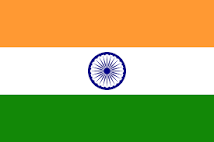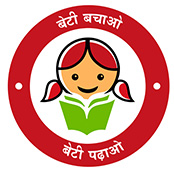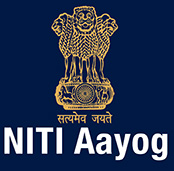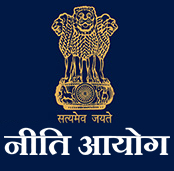- Overview
-
The Water & Land Resources Division is charged with the responsibility of strategic policy formulation, appraisal of programmes/ schemes/ projects, co-creation of knowledge, driving water related interventions in aspirational blocks/ districts and dissemination of knowledge on water and land related issues. It’s objective is to support water and land resources sector for improved access inter alia covering sustainable drinking water and sanitation, water resources development, watershed management, river and ground‑water conservation and land resources management, while promoting resilience and ecological balance. The division promotes best practices across states, encourages technology adoption, and provides targeted advice to Central, State and other stakeholders, whenever sought. The Division, for the above purposes, works with Central Ministries/ Departments, States/ UTs, think-tanks, Multi-lateral development organisations, academic institutions, industry and other stakeholders.
The Division’s strives to:- Support evidence-based decision-making through comprehensive policy briefs, strategic recommendations.
- Collaborate engagement with States and Union Territories (UTs) on matters related to drinking water supply &, sanitation (predominantly rural) , water resources inter alia covering irrigation coverage, Command Area Development, Flood Management, Micro irrigation and land resources - watershed management and digital land records management.
- Facilitate the sustainable and judicious use of water and land resources by encouraging States/UTs to encourage rainwater harvesting, wastewater reuse, conservation agriculture, and integrated watershed and river basin management.
- Conduct community-centred initiatives on drinking water and sanitation, such as Jal Utsav, rejuvenation of water bodies, and organizing workshops.
- Collaborate with research institutions, civil society organisations, multi-lateral development partners, and local bodies to promote innovation, strengthen institutional capacities, and enhance community participation for long-term water and land security.
- Analyse, interpret, and review water resources and land-related data for informed decision making.
- Encourage community participation in various initiatives related to drinking water and sanitation. Provide targeted interventions in Aspirational Districts/Blocks.
- Promote research and development by engaging with research institutions to encourage the use of emerging technologies in water and land management.
- Key Functions
-
1. Policy Analysis, Formulation, and Coordination:
- Regular review of national and state-level strategies like State Vision Documents and policies.
- Provide directional inputs to Ministries, Departments, and implementing agencies, whenever sought.
- Coordinate closely with State Governments and relevant institutions to promote consistency and effectiveness in sectoral governance.
- Coordinate with other Divisions for the Chief Secretaries Conference and NITI Aayog’s Governing Council meetings.
2. Impact Assessment and Data Interpretation:
- Conduct in-house studies and partner with evaluation agencies to identify policy and performance gaps and provide actionable insights.
- Review datasets and project documents to support decision-making through robust data interpretation and evidence synthesis.
- Develop metrics and evaluation frameworks for ongoing and proposed projects to enable outcome-based planning.
3. Partnerships and Capacity Building
- Collaborate with State Governments, civil society organisations, academic institutions, and international agencies to enhance collective action.
- Enable community-led implementation and service delivery.
- Encourage cross-sectoral partnerships to scale up innovation, best practices, and knowledge dissemination.
4. Appraisal, Evaluation, and Technical Reviews
- Examine the Standing Finance Committee (SFC), Expenditure Finance Committee (EFC) memorandums seeking funding of large water resources/ water supply/ land management initiatives and evaluation reports of flagship programmes.
- Examine project proposals for States/UTs such as Preliminary Project Reports (PPRs) and Detailed Project Reports (DPRs)
- Assess proposals in sectors such as drinking water and sanitation for technical and financial feasibility.
- Review of sectoral data sets for preparing policy briefs.
- Line Ministries & State Interfaces
-
- Ministry of Jal Shakti
- Department of Water Resources, River Development and Ganga Rejuvenation
- Department of Drinking Water and Sanitation
- Ministry of Rural Development – Department of Land Resources.
- Other Ministries – Housing and Urban affairs, Development of North Eastern Region for water related matters.
- All State Governments/ UTs.
- Ministry of Jal Shakti
- Reports
- Who’s Who
-
Name Designation Email ID Shri Yugal Kishore Joshi Program Director yugal[dot]joshi[at]gov[dot]in Sh. A. Muralidharan Deputy Adviser amdharan[at]gov[dot]in Sh. Saroj Kumar Nayak Consultant, Gr. -I saroj[dot]kn[at]niti[dot]gov[dot]in Ms. Shipra Singh Young Professional shipra[dot]s[at]niti[dot]gov[dot]in Sh. Sameer Mandal Young Professional sameer[dot]mandal[at]niti[dot]gov[dot]in
 National Portal Of India
National Portal Of India 









